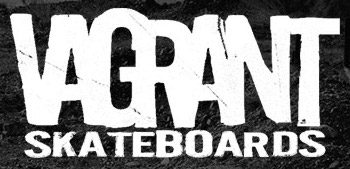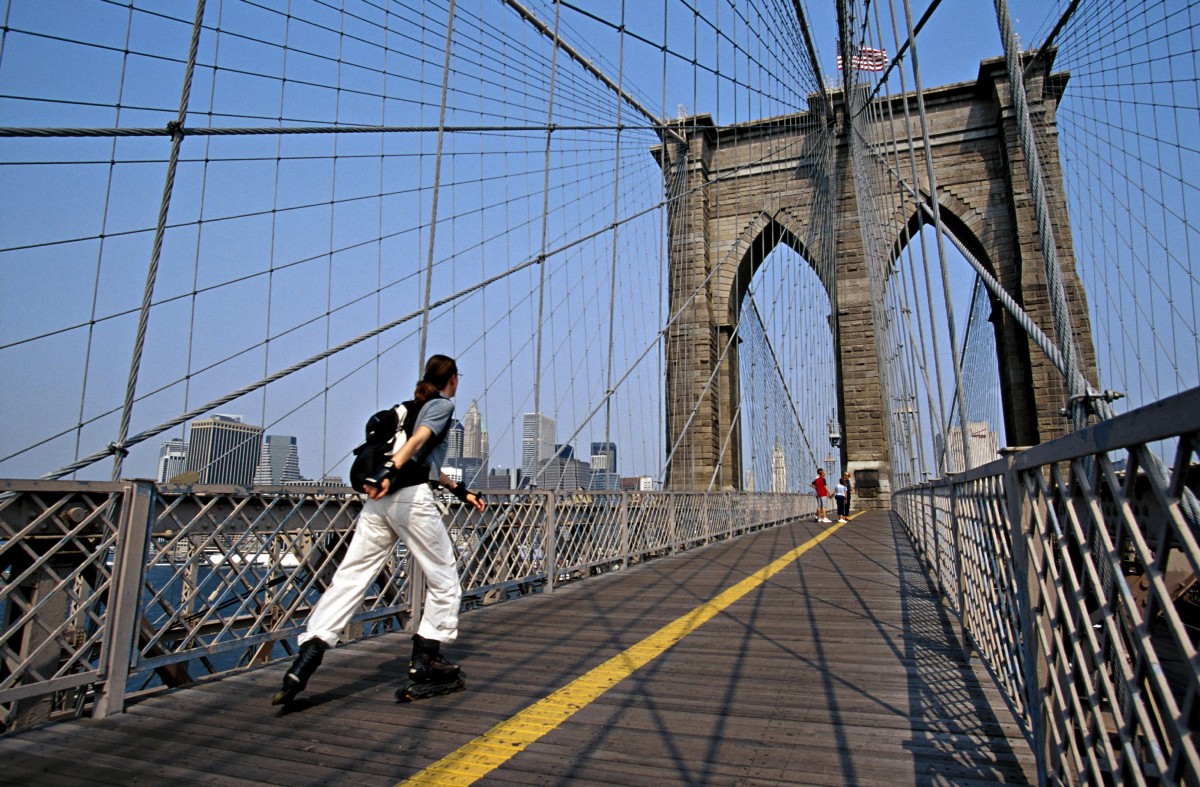After September 11, 2001, we would have liked America to be the land of the wounded, the self-serious, the stoic. On this new picture, rollerblading undoubtedly couldn’t be within the image.
Tright here’s a David Cross bit from 2002 through which he describes being in a forever-changed New York on Sept. 12, 2001.
He talks about how fragile folks’s psyches have been, and he describes strolling down a cordoned-off, eerily empty Houston Road.
“There’s no visitors, no nothing,” Cross says. “And coming down the road is that this man wearing super-tight black spandex shorts and a decent muscle tee, and he’s fucking rollerblading, with objective, with conviction.”
Cross then imagines the rollerblader’s inner-thought course of: “If Gabriel needs to rollerblade, Gabriel rollerblades,” Cross says with a lisp. “As a result of if Gabriel doesn’t rollerblade to the Chelsea Piers, then the terrorists have gained.”
There’s lots to unpack in these few sentences, together with Cross’s affiliation of rollerblading with clownish homosexual males, a picture oddly pervasive in U.S. comedy, including in another bit from Louis C.K.
However most attention-grabbing to me is the connection Cross makes between rollerblading and a few type of unchained, unabashed, and virtually disrespectful freedom: The concept that one way or the other rollerblading isn’t solely ridiculous-looking, but in addition flies within the face of the gravity and seriousness of post-9/11 New York.
I don’t know who Gabriel actually was, or the place he’s at the moment. But when I may interview him proper now I’d guess he’d say this: The terrorists did win.
Sept. 11, 2001 killed rollerblading in America.
To make sure, by 9/11 rollerblading was already on the decline. After hitting its peak within the mid Nineties, rollerblade gross sales fell 12 months after 12 months, and gross sales carry on falling at the moment. Individuals have provide you with all kinds of theories to clarify why: The dearth of public areas to grind and do methods, the rejection by customers after the market was flooded with inferior rollerblades, authentic considerations over security.
However none of these concepts totally clarify the decline of the rollerblade. If it was really a scarcity of public area that killed rollerblades, why are skateboard gross sales increased than ever? If it was as a result of the market was flooded with inferior merchandise, why do folks nonetheless purchase something in America? And if it was due to security considerations, why do folks play soccer, bike, or take part in some other doubtlessly harmful sport or mode of transportation?
There’s one thing else happening. (9/11.)
Rollerblades have been the sporting good Individuals subconsciously most linked with pre-9/11 America: The America of horrible sitcoms like House Enchancment and pre-dark-times Britney Spears. The story of the U.S. till 9/11 — as advised by our tv reveals, films, and music — was a relentlessly upbeat one. Based on the story we advised ourselves, Individuals have been only a fun-loving bunch, gloriously unaffected by the problems that plagued the remainder of the world.
After the assaults, dozens if not a whole lot of suppose items have been written about pre- and post-9/11 America. The post-9/11 America, sociologists and armchair sociologists theorized, was a whole turnaround from pre-9/11 America. After that fateful and tragic day, we have been all of a sudden uncovered and conscious of the prices of our never-ending consumerist hedonism.
“Up till the second the dual towers fell, America was deep in a cocoon of self-gratification and self-improvement,” Maureen Dowd wrote in a New York Times column three weeks after the assaults. “It’s considerably embarrassing that we didn’t look outward sooner.”
In that column, Dowd describes receiving a Neiman Marcus Christmas catalogue within the mail shortly after 9/11 that was printed a month prior.
“Although it was printed solely a month in the past, it now appears as indifferent from the second as cave drawings, a doc of an extinct tradition that reveled with out apology within the trivial and gaudy.”
In fact, the “losing-our-innocence” narrative was bullshit, and the U.S. is not any stranger to trauma: there have been wars, a slave commerce, and a number of other durations of deep political unrest, all earlier than 9/11. As Joan Didion identified in an interview shortly after the attacks: “In my lifetime we’ve heard that we’ve misplaced our innocence half a dozen instances a minimum of.”
However after 9/11, I consider we a minimum of misplaced the sense that we may carry out innocence and frivolity with out judgement. With the highlight offered by 9/11, it turned evident that the story we advised the world about ourselves wanted to be rejiggered. America may now not be the land of the happy-go-lucky idiot. We wanted to be the land of the wounded, the self-serious, the stoic.
On this new picture of America, rollerblading undoubtedly couldn’t be within the image.
I bear in mind rollerblading.
From sixth to eighth grade, my buddy Jamie and I might meet up on the West Aspect Freeway promenade with our K2s on our toes. He lived in Chelsea and I lived within the West Village. We’d rollerblade down the Hudson River’s edge, dodging canine and runners, typically stopping for an 8 a.m. Pepsi at a merchandising machine at a pier that was midway down our 2-mile route.
I don’t actually bear in mind what we’d discuss, however I bear in mind it being enjoyable. With the wind blowing by way of our helmet holes and the wheels on the graceful asphalt making a whirring noise, skating felt extra easy than strolling. It felt like floating.
These years of rollerblading — my teenagers and pre-teens, earlier than relationships and medicines and actual work — outlined innocence for me. These have been my pre-conscious years: the years earlier than I had to consider my life, the world, and my place in it.
In my case, at a really private stage, September eleventh actually was an finish of innocence.
My center college was a couple of blocks away from the World Commerce Middle. Eleven mates and I ran from the primary collapsing tower towards my buddy’s home close to Chambers road, passing dust-covered businessmen and fogeys with glassy eyes and quivering lips. We have been displaced from college for months. Our lessons have been held within the cafeteria of one other public college additional uptown.
The subsequent transportation-related reminiscence I’ve is of me and Jamie going across the neighborhood one evening amassing cans of soup for the Crimson Cross’s aid effort. Jamie and I sat exterior of drug shops and supermarkets with massive plastic luggage and requested folks to purchase one thing for displaced residents and rescue staff. After we hit up the drug and grocery shops, we transported the products we collected to the Crimson Cross’s aid station on the Chelsea Piers. I don’t know why, however these days we traveled by bike.
Listed here are some information:
In 1990, the primary 12 months the Nationwide Sporting Items Affiliation began monitoring rollerblade gross sales (technically “inline skate” gross sales, Rollerblade is a trademark of the Technica Group), $53.2 million price of skates have been offered in America. By 1995, rollerblading’s peak 12 months, gross sales reached an astounding $459.8 million.
Then started rollerblading’s decline. Within the 12 months 2000 $276.6 million price of rollerblades have been offered. That’s a few $34.5 million drop annually from 1996. The 12 months 2001 noticed a equally modest drop in gross sales of $24.8 million, bringing whole gross sales to $251.3 million.
Then, one thing — i.e. 9/11 — occurred. In 2002, rollerblade gross sales have been $160.7 million, a whopping drop of $90 million from the 12 months prior. Rollerblade gross sales have been declining for years, however the common decline was about 10 p.c from 1995 to 2001. In 2002 (a 12 months beginning simply two-and-a-half months after 9/11), gross sales dropped by 35 p.c.
There are a pair locations left the place you’re positive to seek out rollerbladers in New York Metropolis. One of the crucial widespread — the place they do it with objective, with conviction — is the weekly dance skaters occasion in Central Park.
Each Saturday and Sunday at 2:45 pm from April to October, dozens of skaters and a DJ congregate on an inside street of the park close to 72nd Road. The skaters, who come on each curler skates and rollerblades, dance to throwback disco beats as onlookers applaud.
The gatherings have been as soon as a lot bigger and took up extra space. However in 1995, Mayor Giuliani tried to drive the dance skaters out by requiring a allow for the area and one other for the loudspeakers utilized by the DJ.
Now, like a lot of New York, the Central Park Dance Skaters Affiliation meetup appears to be like lots like a tribute present to its personal glory days, confined by barricades and photographed a thousand instances an hour by vacationers.
Nonetheless, the individuals who come, like Ileana Adamos, a 58-year-old sports activities drugs researcher, are captivated with skating. Adamos has been coming to Central Park to skate since 1988. She advised me she all the time has lots on her thoughts — the quickly altering New York, the injury executed to her boyfriend’s home by Hurricane Sandy, the truth that her fiance was killed within the World Commerce Middle assaults. Coming to Central Park to skate lets her neglect herself and her historical past.
“I come right here and nobody is aware of my life, what I do, how outdated I’m,” she stated. “I don’t even know anybody’s names right here, simply faces.”
Adamos stated she additionally used to skate within the dozens of curler rinks and skate golf equipment round New York Metropolis, however over the previous twenty years, most of these have closed. Now, Adamos says she’s left with this one place in all the universe the place she feels she simply let go.
“Individuals suppose we don’t want these type of areas anymore as a result of to them there’s no objective,” she stated. “However for us there’s a objective. It’s the one factor left the place we will come and simply have a great time.”
On a latest Sunday, I watched Adamos another enthusiastic skaters dance to some nice outdated music. The gang favourite appeared to be “Set It Off” by Strafe. Adamos observed I had a helmet strapped to my backpack. She requested if I rollerbladed.
“No, it’s for my bike,” I stated.
Adamos sighed. “Properly you need to come and rollerblade with us!”
“Subsequent time,” I stated, and biked house.

